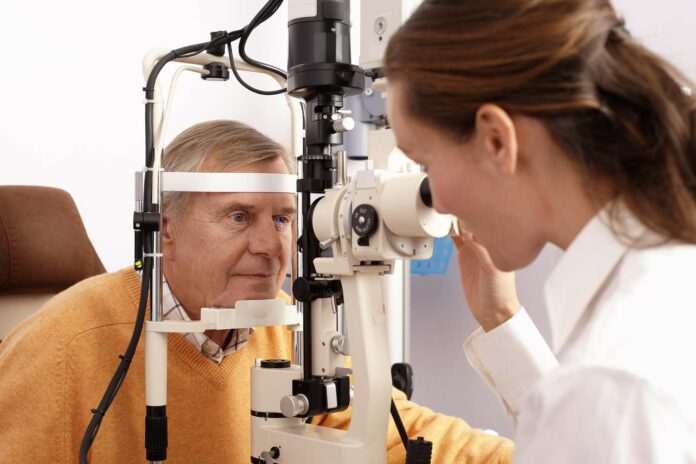Access to affordable and comprehensive healthcare coverage is essential when maintaining good eye health. For those enrolled in Medicare, understanding the eye treatments and services covered by the program is valuable information.
The Medicare program covers a broad range of medical services like surgeries, preventative care, prescription medications, and more. Whether or not Medicare B covers cataract removal and other eye treatments is one of the most common points of interest among beneficiaries. Fortunately, Medicare does cover certain eye care. However, it typically does not cover routine eye care.
How Original Medicare Works
First, it’s important to understand which part of Medicare will cover your eye treatment and related services.
Medicare Part A is your inpatient hospital coverage, including your room and board, hospice, home health care, and skilled nursing facility care.
Medicare Part B is your outpatient medical coverage for services like doctor visits, surgeries, durable medical equipment, physical therapy, and more. Most of your eye care and treatment will fall under Medicare Part B.
Medicare-Covered Eye Care
Typically, Medicare covers medically necessary vision care, which is care needed to treat, monitor, or diagnose a health condition. It also can cover some preventative services.
The Welcome to Medicare Visit
You can schedule your Welcome to Medicare visit within your first 12 months of being on Medicare Part B. This visit is not mandatory but does offer some screenings and tests at no cost to you. One of those is a simple eye exam.
Glaucoma Tests
Medicare covers glaucoma tests once every 12 months for those who qualify. To qualify, a beneficiary must be considered high-risk based on factors like diabetes, family history, age, and ethnicity.
Diabetic Retinopathy
If someone has diabetes, they can also qualify for eye exams for diabetic retinopathy once a year. Medicare may not cover this service if someone does not have diabetes.
Macular Degeneration
Although not guaranteed, Medicare can cover diagnostic tests and treatment for macular degeneration if the degeneration is due to age. Many people must get injections as a form of treatment for macular degeneration. If that is the case, those should also fall under Medicare Part B since they are given in an outpatient setting and related to a medical condition.
Cataract Surgery
Medicare does provide coverage for cataract surgery. However, it only covers monofocal lenses, so you will pay that extra cost if you need an upgraded lens.
Additionally, Medicare will help cover one pair of contacts or glasses after the surgery. However, it typically only covers conventional lenses. If someone receives upgraded lenses, Medicare’s not likely to provide coverage, including for lenses implanted during surgery.
Dry Eye and floaters
Other common health conditions seen in seniors are dry eyes and floaters. These can be considered medical issues covered under Medicare Part B.
Costs
In most eye care and treatment cases, Part B deducible will apply first. Once the deductible is met, beneficiaries are responsible for 20% of the Medicare-approved amount. Fortunately, a Medigap plan can help cover some or all the 20%, depending on the plan. If you have a Medicare Advantage plan, your costs will vary with each plan.
Optometrist or Ophthalmologist?
Regarding Original Medicare, you can see any provider that accepts Medicare. Optometrists and Ophthalmologists can accept Medicare which means you could see either provider. However, your eye issue will determine which one may best treat your needs.
Medicare & Routine Eye Care
Unfortunately, Medicare does not cover most routine services. Therefore, routine eye care is usually not covered under the Original Medicare program, including contacts, glasses, and eye exams to see if you need glasses or contacts, also known as eye refractions.
Medicare Advantage Offers Routine Eye Care
If you find that a Medicare Advantage plan best fits your medical needs, you may be in luck with routine eye care. Many Advantage plans provide additional benefits, and vision care can be one of them. Depending on the added benefit, you may have a specific allowance toward eye care during the year, or they may give discounted rates for eye exams and contacts or lenses.
You can view your benefits in your plan’s Summary of Benefits document.
Standalone Vision Policies
There are standalone vision plans outside of Medicare that you can purchase. Since they are not part of Medicare, you can enroll in these plans anytime during the year. They may offer a free annual eye exam or a discounted rate. Depending on your plan, you could also have a discount for glasses or contact lenses.
Plan for Your Needs
Most eye issues and injuries are considered medical and covered by Medicare or your Medicare Advantage plan. However, Medicare does not cover routine eye care, including annual eye exams needed for glasses or contacts. But you’re not out of luck, as there are plans you can purchase that offer coverage for routine eye care.


